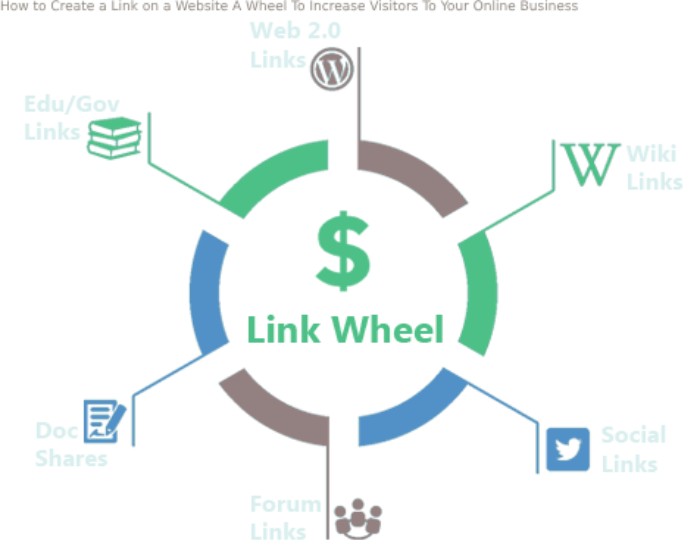There will likely be a significant increase in demand for mobile app developers. As a result, the market for creating mobile applications is growing quite fast. According to projections, millions of new mobile app developers will be employed.
This firm is expanding quickly because of the growing need for mobile applications. Throughout the past several years, there has been a notable growth in the number of people using tablets and smartphones. This has led to a rise in demand for mobile apps.
Motivating Factors for Mobile App Development
The need for mobile apps is growing due to several causes. First, an increasing number of people are using their smartphones and tablets to do tasks they used to accomplish on desktop or laptop computers. For example, customers increasingly use their smartphones and tablets to purchase tickets, check-in for flights, and make hotel reservations.
Second, the capabilities of smartphones and tablets have significantly improved in the last few years. It is now possible to create apps with more features and complexity.
Third, there has been a significant shift in the climate around app stores in recent years. It is now more accessible for people to look for and download mobile apps because of the App Store and Google Play Store. This has contributed to the industry’s continued growth in mobile app development.
Fourth, the price of tablets and smartphones has decreased dramatically in the last few years. More individuals can now afford these things as a result. This has led to a significant increase in the number of users of these gadgets. In addition, New York is seeing an increase in demand for mobile app development businesses.
Popular categories for mobile apps
We predict a rapid expansion of mobile applications in the future years. The projected valuation of the global app market is $6.3 trillion. Increases in the usage of apps for essential tasks like banking and shopping, as well as the ongoing growth of the smartphone industry and new app categories like augmented reality and wearables, will all contribute to this growth.
Which mobile app categories will be in demand? Here are a few examples:
Services on Demand
On-demand applications like Uber and Airbnb have transformed employment and how we live. A growing number of businesses will use this idea. For example, on-demand washing services that pick up and deliver the customer’s clean, pressed clothes are becoming increasingly popular. Using the available on-demand dog walking services is an additional way to provide your pet with exercise.
Mobile video games
The expectation is that gaming apps will become commonplace. This is because they provide an excellent kind of entertainment for individuals. Furthermore, there are several advantages that gaming apps provide over traditional video games.
Applications that need a subscription
Furthermore, the subscription model is becoming more popular since it gives businesses a more reliable revenue stream. Apps like Netflix and Hulu are excellent examples of this trend, and more companies will probably follow. A few instances include an app that allows you to access a library of ebooks on a subscription basis or an app that provides unfettered access to a database of recipes.
Social media apps
We anticipate a significant uptake of social networking apps. Social media platforms such as LinkedIn, Facebook, and Twitter provide an excellent means of making connections. Companies can advertise their goods and services on these sites.
These are a few examples of the typical smartphone app categories. As you can see, there is a promising future for developing mobile applications. Now is the perfect moment to begin constructing an app if you’ve considered doing so. On the other hand, seeking expert advice from a reliable mobile app development business might be beneficial.
Trends in Mobile App Development
However, keeping up with the constant developments in the mobile app development business may take time. The fads of today can be outdated, and the trends of last year might not hold this year.
What, then, can businesses do to keep themselves competitive?
We’ll examine several significant developments in mobile app development that are expected to continue to grow. We’ll also give you some pointers on preparing yourself if you ever need to develop mobile applications.
1. Creating No-Code and Low-Code Platforms
One of the significant developments expected to impact mobile app development in the future is the emergence of low-code and no-code platforms.
In the past, developing a mobile application required knowledge of many coding languages and was challenging and time-consuming.
However, low-code and no-code platforms have entirely altered the landscape.
These platforms let businesses develop sophisticated mobile applications with no coding expertise. They provide a visual drag-and-drop interface that makes it easy to create complex app features without writing a single line of code.
Low-code and no-code platforms are significantly faster and less expensive than traditional app development methods. This is because developing an app for them requires less time and work overall, which lowers the development cost.
No-code and low-code platforms will become increasingly common among businesses of all kinds. By 2024, no-code development will have produced more than half of all commercial mobile apps.
2. Advancements in AI and ML
Two major trends that will affect the future of developing mobile applications are artificial intelligence (AI) and machine learning.
Numerous sectors currently employ these technologies to enhance decision-making and streamline processes. A new analysis claims that they will also greatly influence how mobile app development develops in the future.
Machine learning will play a significant role in future app development. Utilising technology will make user experiences more exciting and one-of-a-kind. We’ll also use it to improve app speed and security.
3. The Creation of Chatbots and Virtual Assistants
Chatbots are computer programs that mimic human communication. Applications for them include providing customer service, promoting products and services, and engaging in casual conversation.
Unlike humans, virtual assistants are machines that perform jobs and act on behalf of people. They help with arranging flights, bookings for supper, and appointment scheduling.
Chatbots and virtual assistants are both seen as essential elements of app development in the future. This will enable the creation of more engaging and customised user experiences. Moreover, chatbots and virtual assistants can automate basic tasks. More time for your development team to concentrate on more complex features may be available.
4. The Evolution of Blockchain Technology
We expect blockchain technology to have a significant influence on mobile application development. Blockchain is secure, transparent, and impenetrable. It also provides a way to store transactions in a distributed database. The technology behind cryptocurrencies, such as Bitcoin, is what makes them feasible.
Blockchain, on the other hand, offers many possible uses that go beyond cryptocurrencies. It makes it easier, for example, to create smart contracts, store data securely, and even monitor the provenance of commodities.
Because of its many possible uses, blockchain already has a significant influence on developing new apps. New research states that by Q4, 20% of all enterprises will use blockchain. Consequently, more individuals will try to hire mobile app developers, and the application market will grow.
Future Work on Enterprise Mobile App Development
Without question, mobile applications have fundamentally altered how organisations operate. Apps are now essential to the operations of many firms since they facilitate everything from communication and cooperation to client involvement. Enterprise app development solutions that are trustworthy and strong are in greater demand, as is the need for more intricate and feature-rich apps.
This quick growth is due to several factors, including the expanding bring-your-own-device (BYOD) trend, the necessity for businesses to improve the customer experience, and the rising desire for mobile apps that may boost productivity.
Businesses are investing an increasing amount in developing corporate applications, which is not unexpected considering the size and growth of the market potential. Additionally, the environment for creating corporate apps is growing along with the need for workplace mobility solutions.
The Internet of Things (IoT) and artificial intelligence (AI) have enabled businesses to develop more sophisticated apps that enhance user experience. Thus, the future of developing corporate mobile apps seems bright.
In summary
It is essential to consider all factors that influence the development of mobile applications, even if we cannot foretell the future of this field. We’ve covered several crucial concepts and projections to which you should pay attention. Some may seem far off, but you should start planning for them to ensure your app is ready when they become famous. Furthermore, collaborating with an IT consulting firm might be wise if you want to ensure your mobile application is prepared for the rapidly changing technological environment and user demands.
Also read:- Top Trends in IoT App Development to Look Into in 2024



